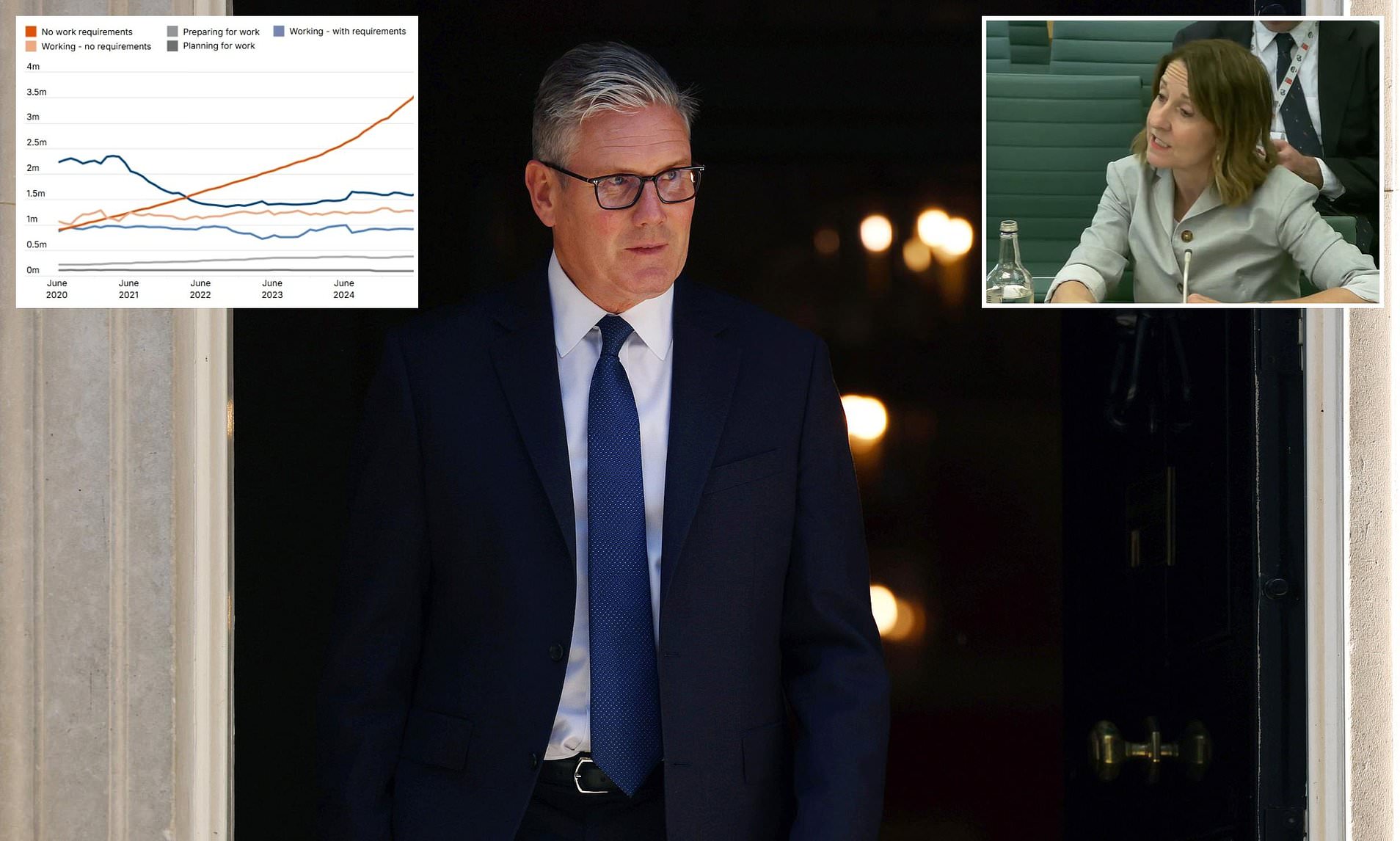Rise in Benefits Without Work Requirements
A significant number of Britons, approximately 3.6 million, are currently receiving benefits without any obligation to seek employment. This marked increase has been observed since the onset of the pandemic. The Universal Credit (UC) system, which supports millions of people across the UK, now sees nearly half of its 7.9 million recipients classified as having “no work requirement.” This is a stark contrast to the fewer than 700,000 individuals in January 2020.
Despite an overall rise in UC claims by 1.1 million over the year to June, the number of people actively searching for employment while receiving benefits has dropped to 1.6 million. These figures highlight the ongoing challenges facing the UK economy, particularly in terms of health and sickness-related issues. Government ministers are finding it increasingly difficult to manage the rising costs associated with these welfare programs.
Political Reforms and Challenges
Keir Starmer, leader of the Labour Party, recently had to scale back a £5 billion reform package due to strong opposition from his own MPs. The Department for Work and Pensions (DWP) noted that UC claims with “no work requirements” surpassed those requiring job searches in April 2022. This shift was attributed to new claimants and individuals transitioning from the old Employment and Support Allowance (ESA) program.
The government has pledged to eliminate work capability assessments for UC by 2028, aiming to make the rules more stringent. However, no clear replacement has been outlined yet. For the first time, the government released detailed data on how many immigrants are receiving UC benefits. As of June, 1.2 million UC claimants had EU settled status, were refugees, or had limited or indefinite leave to remain. This figure represents an increase from 1.1 million a year earlier.
Immigration and Welfare Policies
Campaigners have criticized the situation, calling it “unsustainable,” as most migrants receiving UC are not employed. Approximately 83.6% of UC recipients are British, Irish, or live and work in the UK without immigration restrictions. The Conservative Party maintains a stance that UC should be reserved exclusively for UK citizens.
The government asserts that it inherited a flawed welfare system and an unsustainable benefits bill. It is working on reforms aimed at tightening eligibility criteria for UC. A spokesperson for the Prime Minister stated that the time required to apply for settled status will be doubled from five to ten years, thereby limiting access to benefits for non-citizens.
When asked if Sir Keir wants to reduce the number of foreign nationals claiming benefits while unemployed, his official spokesman confirmed that both parties aim to lower overall immigration numbers. This goal is part of the broader plan outlined in the Immigration White Paper, which includes extending the period needed to qualify for settled status.
Eligibility and Access to Benefits
The DWP published the breakdown of immigration status following a public commitment to investigate and develop data on UC caseloads by the immigration status of foreign nationals. To qualify for UC, individuals must have an immigration status that allows them recourse to public funds. Those with no recourse to public funds (NRPF) cannot claim most state-funded benefits, tax credits, or housing assistance.
Asylum seekers, who typically have NRPF, are ineligible for UC. However, those granted refugee status, defined as individuals forced to flee their country due to persecution, war, or violence, can access UC. Refugees on UC have the lowest employment rate at 22%, largely because they cannot work immediately after being granted refugee status.






